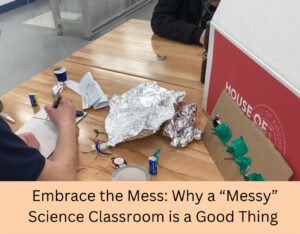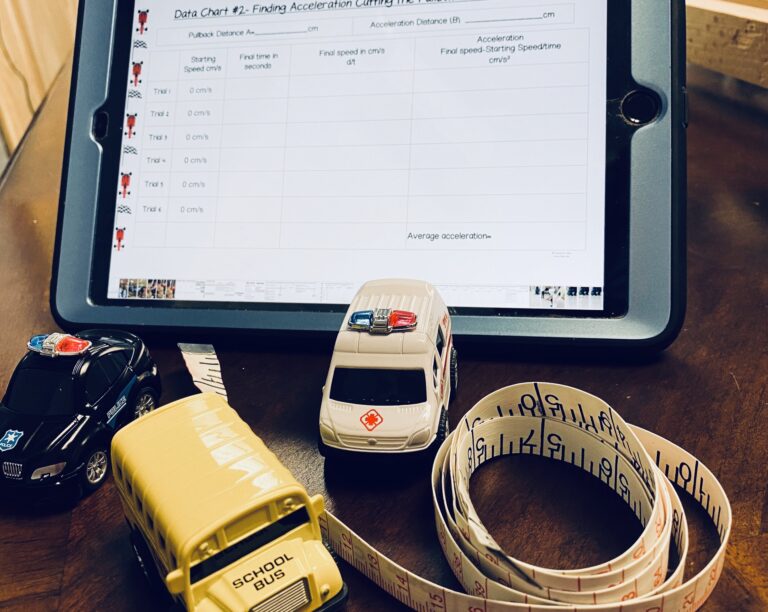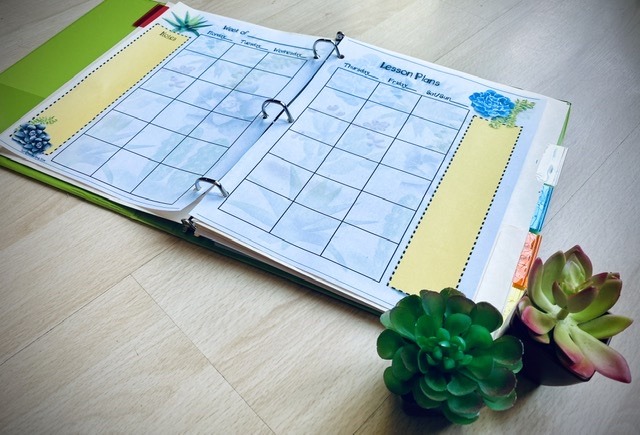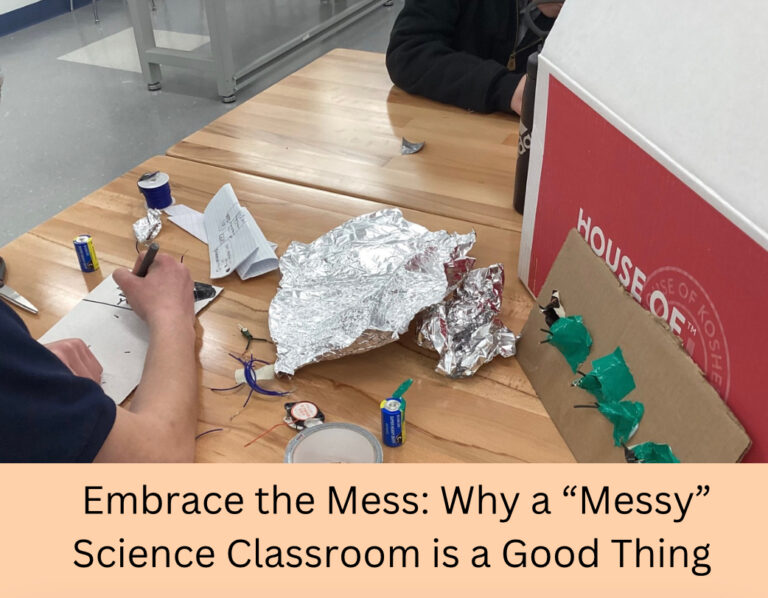10 Tips to Prevent Discipline Problems in Your Classroom
Are you nervous about starting the school year teaching middle school and worried about having discipline problems? Does having the students out of their seats during hands on activities intimidate you?

10 Tips to Prevent Discipline Problems in Your Classroom
Jan 2021
Here are some suggestions on ways to alleviate any major discipline issues BEFORE they develop. Discipline problems come primarily from a lack of structure and planning. This needs to start from the first day of school and be carried through until the last day.
Of course, students bring in their own baggage to your classroom and it will not be a smooth ride every day. However, if you have your strategy laid out, for both the students and yourself, then you’ll be able to head off larger problems.
Start with Your Discipline Plan on the First Day of School
You do not need to start listing a bunch of rules when the students first walk in your room. However, by the time they leave the first day, they should have a very clear idea of how seriously you take structure, organization and expectations.
Some teachers will do an icebreaker on the first day which can cause a lot of chaos and excitement from students who haven’t seen each other all summer or are just meeting each other. They may be difficult to bring back to task and you were at a deficit if you do not know their names yet. This age group will immediately detect that weakness and it may be hard to recover in the upcoming days. I prefer to do any activity like that on the second day.
Think about when you were in school and you were meeting a teacher for the first time. Which were you more interested in? The students around you, who you were going to see all day, or how was this teacher going to be in terms of strictness, expectations and work? If you hear kids buzzing in the hallway near a new teacher’s room, you will hear them asking “Is she nice?“ or “Is she hard?“. That’s what these students care about.
I start the year giving them that information about me. I discuss what we are going to cover during the year, and have a syllabus to show them. But, don’t let it be too dry.
I may make the syllabus have some mystery to it. Instead of saying “We are going learn about potential and kinetic energy” I may say “Learning the magic of a roller coaster!”. Instead of saying that we are simply going to be learning about electricity I may say “how do we get rid of the most dreaded icon on our phone?”(let them guess the dead battery sign).
Talk about what percentage each type of activity in your classroom weighs for report cards. For example, my projects weigh 40%, tests and quizzes weigh 30%, homework weighs 10% and classwork weighs 20%. This instantly lets students know what you consider the most important aspects of your class.
Talk about expectations and consequences in a very matter-of-fact manner. If something is late you take two points off, etc. I tell them that I will not chase them around at recess and, unless it gets really out of hand, I won’t be calling their parents. They own their grade 100%. Again, this is putting their success into their own hands.
While they sit in their seats, I walk around the room and give a tour. I am very clear on areas of my classroom that they are welcome to touch and areas that are off-limits, such as my desk or bookcase. You need to stand by these rules yourself and don’t send a child later in the year to your desk to get scissors because you are busy. These are boundaries that they should always respect.
Keep an Everyday Routine
If students know exactly what they should be doing when they come in, with a bell ringer or task, then there is much less chaos during the first 3 to 5 minutes of class.I have talked about how important those first few minutes of class are in my time management blog post.
A guaranteed way to have discipline problems is to have students buzzing around your desk while all the others are socializing. Students in my classroom know that they may not approach me in the beginning of class and that once we get started I am more than happy to speak with them. They will need reminding for the first month of school but it is a very effective way of maintaining instant control. Once they start conversations with each other it is very hard to pull them back to task.
I always let the students know how they will be graded for that day’s work, even if it is simply dealing with background lecture notes.
Up Front Expectations Help With Much Fewer Discipline Problems
Since I use digital notebooks, students know that I will look at their notes that evening. I deliberately go on their Google Slides shared presentations during the early evening when I know most students are doing homework. They can see me hop on which keeps them on their toes. Keep them accountable.
I have lab rubrics and project rubrics that I give them ahead of time so they are well aware of their expectations. This has been a game changer in terms of discipline for me.
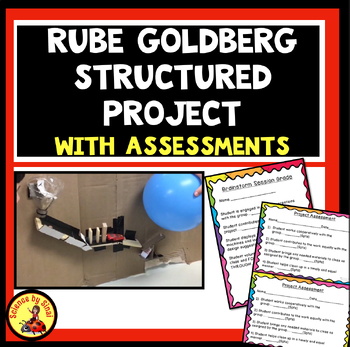
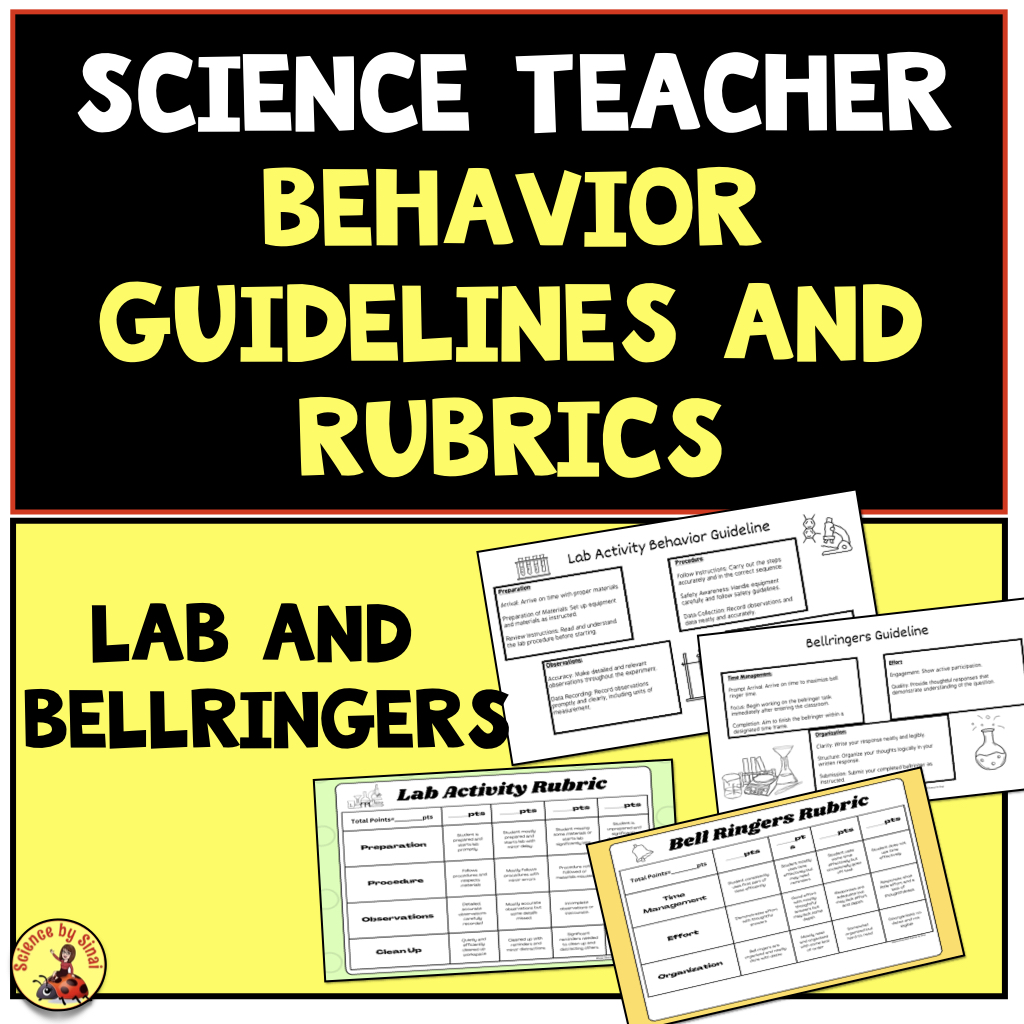
Do Your Homework About Each Student
When I first started teaching I was so caught up in my curriculum that I really didn’t get to know the students too well. I remember going to a talent show, at the end of the school year, and being so surprised that one student did ballet, another did karate, and another was an amazing piano player. Why didn’t I know this??
Figure out ways of learning about students and their interests as you move through your units. If you’re learning about forces and motion, ask if anybody plays an instrument, or does an interesting sport. Ask them to video or describe how they see forces being used. Instant buy in!
After doing your research on students, remember what you learned! I sometimes even jot it down. Let’s say you are studying the nervous system and talking about high-level thinking. You bring up the fact that your student David plays the very complicated game called chess using his brain connections. This small reference will make David soar through the roof!
Find reasons to praise students. Even something as simple as holding the door open for you gives you an excuse to say “thank you, kind sir!” or walk past a girl and say “awesome shoes!” These little connections make a big difference later in the classroom.
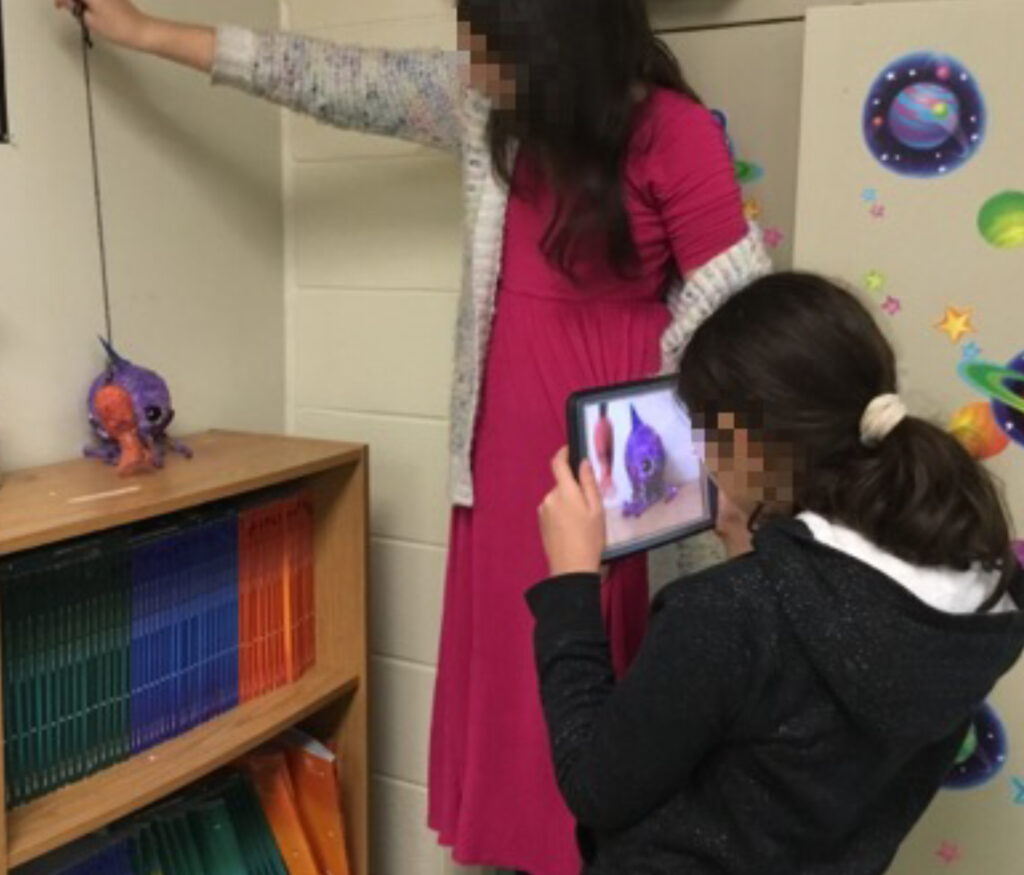
Show You Are Human
I have mentioned this in my other blog posts on teaching middle school, but this is critically important to keeping a handle on your classroom. Once you gain the loyalty of this age group, it is yours.
Don’t get me wrong, you’re not trying to be their friend. However, you can be friendly. There is a big difference and students should always know where that boundary lies.
Let them hear your laughter. This age group is hilarious! Don’t laugh at them, laugh with them. Laugh at yourself as well. You totally forgot something? Make a funny comment about it. Forgot to print something out that was important? Tell them their goofy teacher had a brain misfire.
I have talked before about never showing that you are flustered or disorganized. Cover it with humor and you will get empathy rather than rebellion. If you are organized 97% of the time, they will forgive human mistakes.
Do you remember when you were young and the teacher started to talk about themselves or their family and you were riveted? A sure fire way of getting the class quiet is to tell them a story. Students love to hear about my dog, my cat and my horse, my daughter and even my husband. I live in the same neighborhood as a lot of the students, so I may talk about a new restaurant or something I saw as I was driving in.
Many students find it harder, or unnecessary, to act up with a teacher that they can relate to. Plus, quite often, peer pressure will stop them in their tracks as the other students don’t react positively to the disruptive student. Remember that loyalty I mentioned earlier?
Watch Your Body Language
We all have bad days. Maybe you didn’t sleep well. Maybe there’s some extra stress in your life.
You absolutely need to try to leave your problems at the doorway of your classroom.
This is not easy, but students have a relationship with you and they will pick up on your mood. This can cause them to be anxious and some students act out when they are anxious or worried. That can be a vicious cycle on a day where you are already feeling not so great.
I like to start my class with a funny meme projected on the board. The kids walk in, read it, giggle a little and then sit down and get to work. This also helps me if they have just come from a class where they were stressed out.
If I am feeling upset, then I generally get impatient. I try very hard to count to six in my head before I respond to a student acting up. This keeps me from overreacting, which could cause me to lose months of trust building with that individual.
Be Involved in the Classroom
I mentioned this in detail in my time management blog post. What you are doing during class sets the mood for the entire class. If you are grading papers or playing on your phone at your desk, while students are doing quiet work, they will think of it as busywork and become very squirmy.
It makes a huge difference if you are walking around looking over their shoulders showing interest.
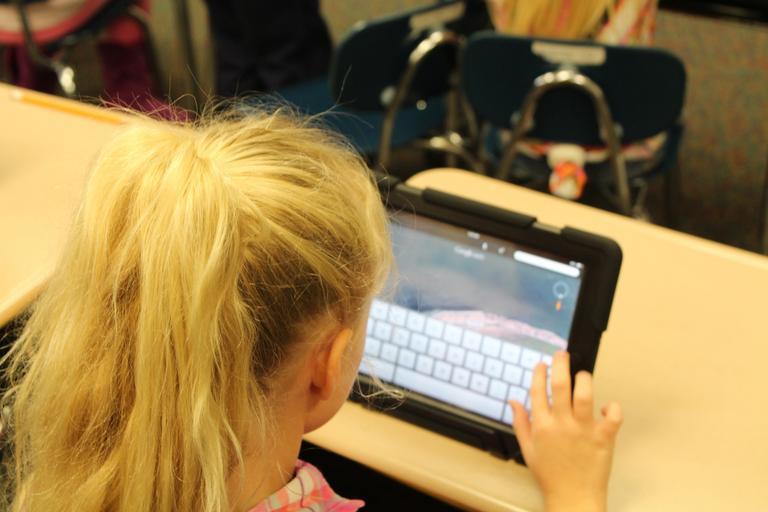
The same thing happens during a lab. If you introduce the lab and then go off and clean glassware, with your back turned to the class, you are sending a message that their task is not worthy of your attention.
Keep your finger on the pulse of the classroom. If an activity is dying, then switch gears. Maybe the activity is too simple? Maybe it’s too difficult? Do the students need some more background information? How quickly you assess any sources of unrest will make a big difference in the class behavior.
Give Lots of Choices
Giving choices makes a HUGE difference in your classroom! Insecurities and frustrations will be the first thing that causes students to act out.
Not all students can handle all activities comfortably. You have shy students that may not be able to present an oral report, but have no problem narrating a video. You have artists who would LOVE to graphically represent a concept, and students who are embarrassed by their inability to draw. Some students love to edit videos and create background music, using the Garage Band app, while other students love to make large physical posters.
Students will actually get excited about a project when it makes them feel comfortable, or better yet, shows off a skill. When a student, who is thinking about acting up, sees all of his/her friends are actively involved and enthusiastic, he/she is less likely to disrupt the class.

Keep all Discipline Private
Never, never, never embarrass a middle school student. Your relationship will be damaged and extremely difficult to repair. If that student happens to be a leader in your class, then you now have multiple problems as his/her friends rally around to follow.
I generally don’t even like to take a middle school student out in the hallway during class. It is still very embarrassing for them to walk back in with everybody staring and he or she will be forced to save face by acting out again. However, if I cannot continue with the lesson without doing so, then I will.
My usual strategy is simply to say “Sarah, please speak to me after class“. If I can do that quietly, out of earshot of others, that is ideal but it’s not always so easy. If a longer discussion is needed then when that student stops after class I may ask them to visit me at recess to talk further.
Since I have digital notebooks, I sometimes send a quiet message via Google Slides, during class, asking a child to stop talking or to stay focused. No one knows it was sent and I might even get a brief look of apology from that student. I know it was appreciated that I didn’t draw attention to the student out loud.
Be Forgiving
If you have a good relationship with your students then they won’t want to disappoint you. That said, students have circumstances once in a while that need to be forgiven. If a student forgets to do an assignment it is fine to let it go another day. None of us have the ability to remember everything all the time!
If the student is struggling to do homework, but yet participates enthusiastically during projects and labs, then you might want to reconsider taking off so many points for the lack of homework.
A sure fire way of taking the wind out of the sails of an enthusiastic child is to penalize them for something that causes them to struggle. Doing so may cause discipline problems as the student becomes obviously frustrated. Of course, you will want to have a private conversation to try to strategize ways to help with the homework.
I know several teachers who only allow their students to go to the bathroom before and after class. Sometimes our bodies don’t work on that kind of a clock. If a student asks then I let them go. Students appreciate this small consideration.
Use Parent Communication
I have to admit that calling parents is my least favorite part of teaching, but it can also be very effective. My administrators have asked me if I have talked to any of the parents lately and my answer is usually no because I don’t need to. This is not bragging, it’s just that I use the method that I have outlined above and it works! (How to Have a Positive Relationship With Parents)
However, some students have a lot of extra baggage that they bring into the classroom and parents need be aware of what is going on. It is important to remember that the student’s behavior is very, very rarely personal against you. There is almost always something else going on in the child’s life that is causing them to act out in frustration.
It’s also quite rare that you call a parent and they don’t know that there is a struggle in school. Keeping the parent updated is very necessary so that there are no surprises down the road. (Dealing With Difficult Parents as a Teacher)
Most students shape up when they hear that you’ve had communication with their parent. I joke with the parents about the effectiveness of “parent power”. It usually takes only one phone call for the student to realize that nothing that they do in the classroom stays only in the classroom.
Create Your Discipline Plan
As mentioned earlier, discipline problems can start on day one and you need to be ready with clear expectations, good organization and communication. If you speak to successful middle school teachers, who follow this approach, they will tell you how much they love teaching their students. Enjoy middle schoolers for the fun age that they are!
Looking for science resources? I have hundreds available in my store at Science by Sinai on Teachers Pay Teachers.







